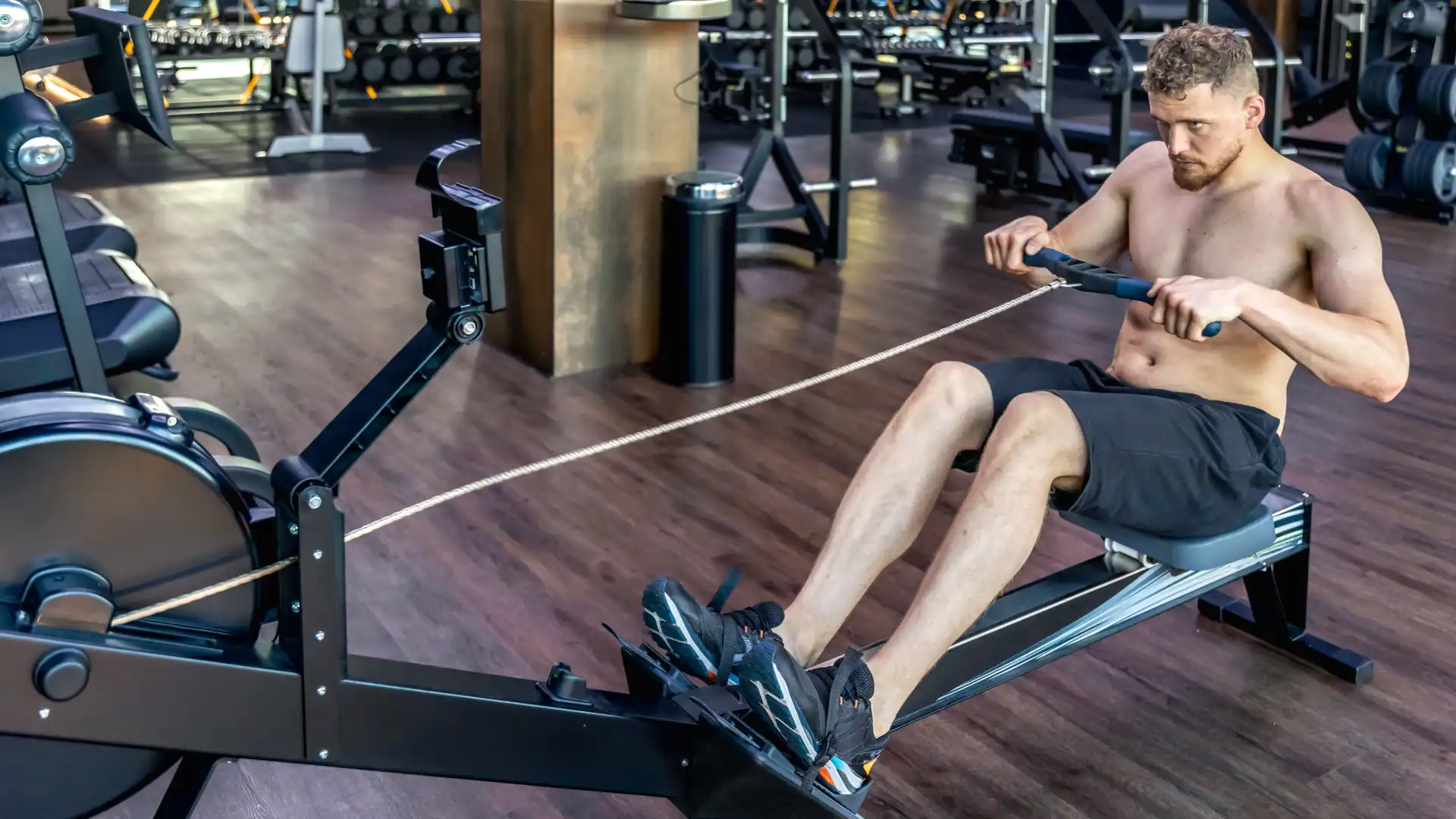Introduction
When I first started rowing, my initial goal was simple: to burn fat and get in shape without having to go to the gym. I wanted something I could keep up, something that actually worked.
After trying all sorts of routines and racking up enough newbie errors to write a book about it, I finally settled on a 30-day rowing routine that allowed me to remain consistent and see results, and I’m sharing it with you today.
If you’re looking to utilize your rowing machine to burn fat without burning out, this guide will take you by the hand and show you how to do it exactly.
Why Rowing for Fat Loss Works
Rowing is one of the top full-body workouts out there. Sure, a treadmill or bicycle is mostly for your lower body, but rowing uses your legs, core, arms, back, and shoulders in every stroke. The more muscles you use, the more calories burned.
And rowing is low-impact, so it’s easier on your joints, so you can repeat rows without wrecking yourself. It’s one reason many people choose it for sustainable weight loss routines.
How This 30-Day Plan Works
This plan is designed for fat loss, not sprint training. It focuses on:
- Building consistency
- Increasing calorie burn gradually
- Mixing steady-state cardio and interval workouts
All workouts can be done in 20–30 minutes or less and are beginner-friendly.
You’ll row 4 days a week, rest or do light movement on other days, and slowly increase intensity each week.
Week 1: Build the Habit
Goal: Get comfortable on the machine and build endurance.
- Day 1: 10 minutes steady row (slow pace)
- Day 2: Rest or casual walk
- Day 3: 12 minutes steady row
- Day 4: Rest
- Day 5: 8 mins slow + 2 x 1-minute harder intervals
- Day 6: Rest
- Day 7: Optional 10-minute slow recovery row
Tip: Focus on good form. Don’t worry about speed or distance yet.
Week 2: Start Burning More
Goal: Build calorie burn with longer rows and light intervals.
- Day 1: 15 minutes steady row
- Day 2: Rest
- Day 3: 3 x 1 min hard / 2 min easy
- Day 4: Rest
- Day 5: 18 minutes steady pace
- Day 6: Rest
- Day 7: Optional 12-minute row or walk
Tip: Attempt to keep your strokes per minute (SPM) at 24–28 for moderate pace.
Week 3: Turn Up the Intensity
Goal: Introduce high-intensity intervals (HIIT).
- Day 1: 5 min warm-up + 5 sets of 30 sec sprint / 90 sec slow
- Day 2: Rest
- Day 3: 20 minutes steady
- Day 4: Rest
- Day 5: 3 min warm-up + 6 rounds of 45 sec hard / 1 min slow
- Day 6: Light yoga or walking
- Day 7: Optional 10-minute row or stretch session
Tip: Sprint = give it about 80–90% effort. Don’t worry about all-out max speed.
Week 4: Combine Endurance and Intervals
Goal: Push your limits a bit while maintaining form and energy.
- Day 1: 25-minute steady-state row
- Day 2: Rest
- Day 3: 5 min warm-up + 8 rounds of 30 sec sprint / 60 sec slow
- Day 4: Rest
- Day 5: 20 minutes moderate pace + 5 min cooldown
- Day 6: Rest
- Day 7: 10-minute recovery row or rest
Tip: You should be challenged, but not destroyed. Finish strong, not spent.
What to Expect After 30 Days
When you finish this plan, you will see:
- Enhanced cardio endurance
- Toned arms and back (yes, actually)
- Increased posture and energy
- And if you’re pairing this with healthy eating, noticeable fat loss
I lost a few pounds, of course. And the great news? I actually felt stronger and more capable. I didn’t fear exercising anymore. I liked rowing.
Product Tip: My Top Rowing Machines
If you’re a beginner, here are 3 good options that I actually recommend:
- Sunny Health & Fitness SF-RW5801 – Silent magnetic rower, perfect for beginners
👉 Read the full review - Stamina ATS Air Rower 1405 – Great value air rower with dynamic resistance
👉 Compare resistance types - YOSUDA Water Rowing Machine – Natural feel, robust construction, and upright storage
👉 Who should choose a water rower?
Related Posts You Might Enjoy
- How to Start Using a Rowing Machine at Home
- Rowing Machine Blunders I Made (So You Don’t Have To)
- Magnetic vs. Air vs. Water Rowers – What You Should Get
Frequently Asked Questions
Can I lose belly fat on a rowing machine?
Yes, but with consistency and calorie deficit. Rowing burns total body fat, including belly fat, in the long run.
Do I need to row every day for fat loss?
Not exactly. 4 to 5 times a week is fine, provided you mix up intensity and leave some recovery for yourself.
What do I need to eat with this regimen?
Maintain balanced meals of lean protein, whole grains, and healthy fats. Don’t over-snack after working out.

